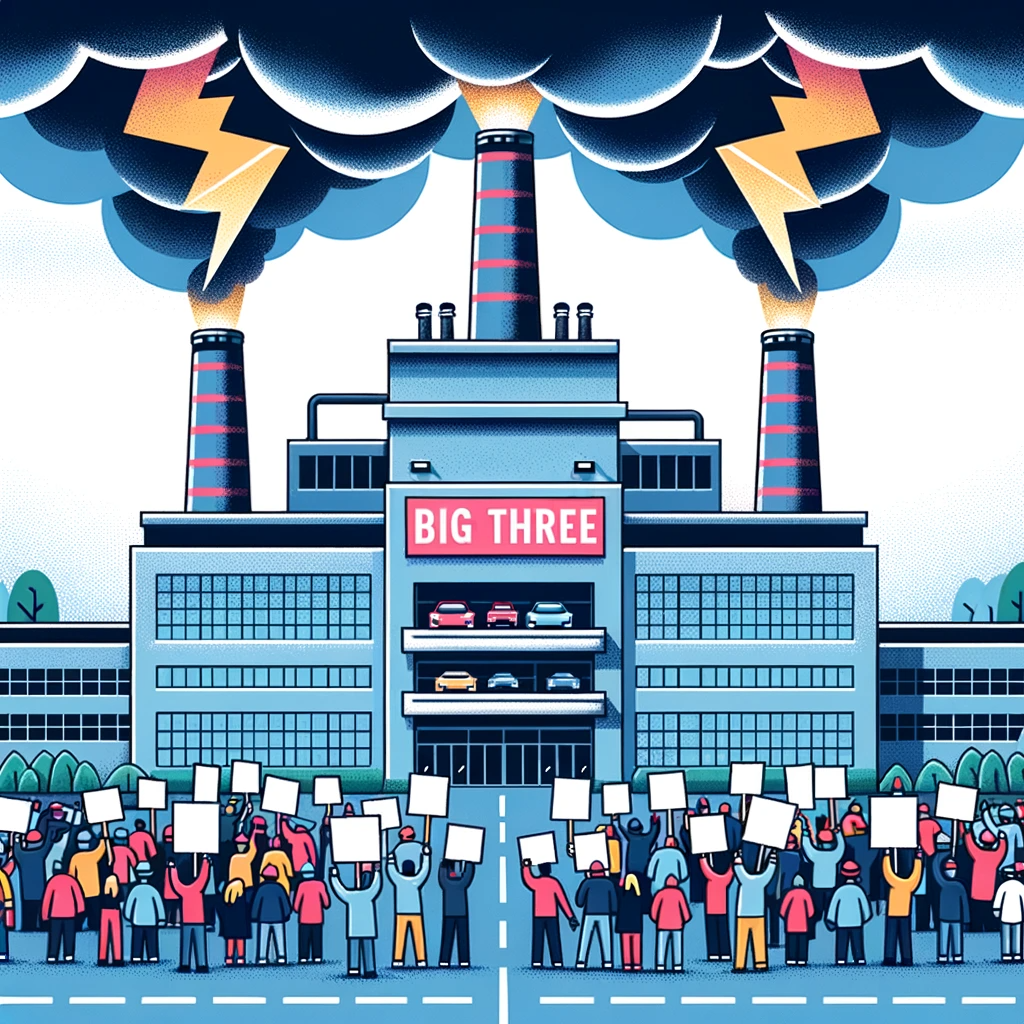The United Auto Workers (UAW) strike comes at a dire time for the Big Three – General Motors, Ford, and Stellantis, as they stand on the precipice of a monumental and costly shift towards electric vehicles (EVs). This transition, on its own, is a financially strenuous venture, threatening to bankrupt these automotive stalwarts. The UAW, aiming for a 35-40% wage hike, shorter work weeks, and enhanced pension benefits, initiated a strike on September 15, 2023, exacerbating the financial strain on these companies.
The strike, named the "Stand Up Strike," has reportedly led to a whopping $5.5 billion in losses across the Big Three, with nearly 5,000 layoffs ensuing as a result. The financial fallout is not confined to the companies alone; the striking workers, braving harsh weather conditions on the picket lines, are facing financial hardships with a meagre $500 weekly strike pay.
Ford's CEO, Jim Farley, voiced concerns that the UAW’s proposal could force bankruptcy for the company. He illustrated that if the proposed changes were retroactively applied from 2019, instead of raking in about $30 billion in profits over four years, Ford would have incurred around $15 billion in losses, leading to bankruptcy. This is a stark reminder of the precarious financial equilibrium that the Big Three are navigating, especially amidst the competitive pressure from non-unionized EV manufacturers like Tesla.

In the first half of 2023 alone, the Big Three accumulated a combined total of $21 billion in profits, and over the last decade, they amassed $250 billion in American profits. The UAW argues that the substantial profits made by these companies should translate into better wages and benefits for the workers. However, the counterargument is that these profits are pivotal for the Big Three to remain competitive, particularly as they venture into the EV market, a domain Tesla has significantly dominated.
The UAW strike underscores a conundrum that extends beyond the negotiating table. It accentuates the broader economic narrative of balancing workers' rights with corporate viability, particularly at a transitional juncture in the automotive industry. The Big Three are caught between honoring their workforce’s demands and ensuring their survival and competitiveness in the burgeoning EV market. The unfolding events will be a litmus test on the resilience and adaptability of traditional automotive companies amidst labor unrest and industry evolution.
Thanks for reading. Lars Strandridder, BestInTESLA



Share:
V4 Tesla Supercharger Looks More User Friendly
R1T Trip Report - Oakland, CA to St. Paul, MN in 3ish Days